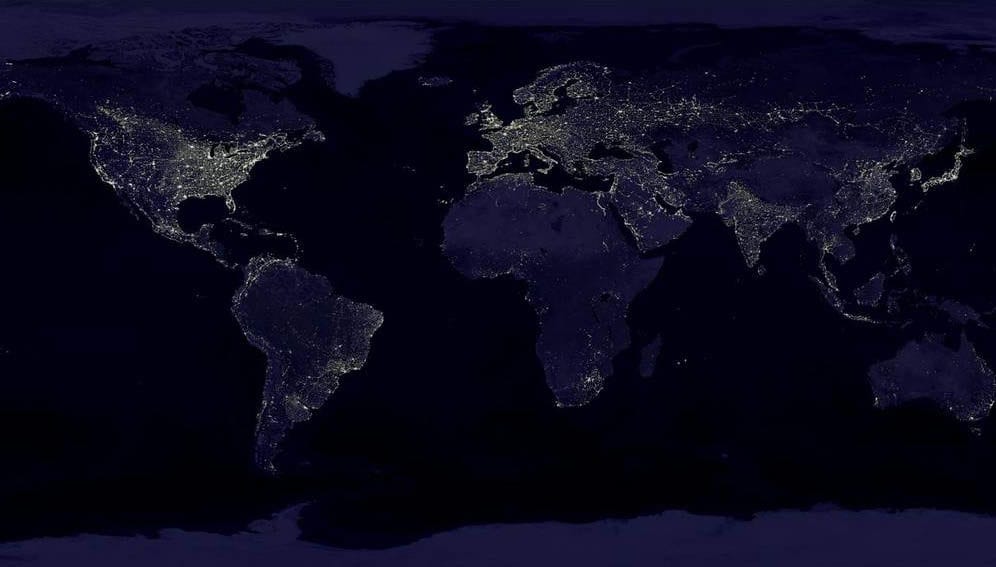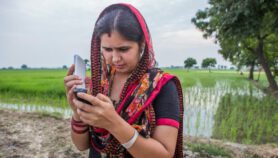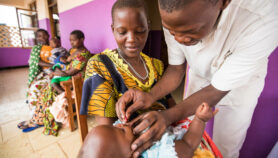By: Gianluca Lazzolino and Laura Mann
Send to a friend
The details you provide on this page will not be used to send unsolicited email, and will not be sold to a 3rd party. See privacy policy.
Across the world, tech firms and software developers are embedding digital platforms into humanitarian and commercial infrastructures. There’s Jembi and Hello Doctor for the healthcare sector, for example; SASSA and Tamween for social policy; and M-farm, i-Cow, Esoko among many others for agriculture.
While such systems proliferate, it is time we asked some tough questions about who is controlling this data, and for whose benefit. There is a danger that ‘platformisation’ widens the knowledge gap between firms and scientists in poorer countries and those in more advanced economies.
Digital platforms serve three purposes. They improve interactions between service providers and users; gather transactional data about those users; and nudge them towards behaviours, activities and products considered ‘virtuous’, profitable, or valued — often because they generate more data. This data can be extremely valuable to policy-makers interested in developing interventions, to researchers exploring socio-economic trends and to businesses seeking new markets.
But the development and use of these platforms are not always benign.
Knowledge and power
Digital technologies are knowledge technologies because they record the personal information, assets, behaviour and networks of the people that use them.
Knowledge has a somewhat gentle image of a global good shared openly and evenly across the world. But in reality, it is competitive.
Simply put, knowledge shapes economic rivalry between rich and poor countries. It influences who has power over the rules of the economic game, and it does this in three key ways.
First, firms can use knowledge and technology to become more efficient and competitive in what they do. For example, a farmer can choose to buy technologically enhanced seeds, inputs such as fertilisers, and tools to process their crop.
This technology transfer is not automatic — the farmer must first invest time to learn how to use these tools. In this sense, economic competition between nations is partly about how well-equipped their people are in using technology effectively.
The second key way in which knowledge impacts global economic competition depends on looking at development as a shift from cut-throat commodity production towards activities that bring higher profits and wages.
In farming, for example, development means moving out of crop production alone into a position of having more control over agricultural inputs, and more involvement in distributing or marketing agricultural goods and services.

So knowledge matters because throughinnovation, it creates new barriers of entry into a competitive position. Rich countries maintain their competitive advantage through control over technology, and digital platforms are part of this system.
Third, knowledge shapes public perceptions of technology and policy-making. Those with ‘evidence’ have disproportionate influence over the rules of the game: they exert pressure over how economies are understood and regulated, and over how property rights over knowledge are governed. Those with money can finance research that produces evidence, and can restrict access to knowledge by others.
In the real world
Here’s an example of how competitive knowledge production plays out in the real world.
At a recent UN Conference on Trade and Development e-commerce meeting in Geneva, representatives from rich economies strongly pushed a digital trade agenda that would enshrine the free flow of data across borders and outlaw data localisation (storing citizen data within the country). They invited ‘experts’ from leading tech firms to speak about the virtues of this vision, and these sponsored presentations dominated proceedings.
By contrast, many developing economies were more cautious, seeking to take more time to understand the implications before agreeing to multilateral rules — so they invited their own ‘experts’ to call for caution and more research. Each side mobilised its own ‘knowledge’, ‘data’ and ‘analytical frameworks’ to influence the wider negotiation process.
The case of African knowledge economies, still recovering from long-term under-investment, is another example.
In 1986, the World Bank made the case that tertiary education was a ‘luxury’ that African countries could not afford, insisting that they instead focus on primary and secondary education. Their competitive advantage lay in agriculture, the argument went, and so what they needed was literate farmers, not scientists or engineers. Higher education funding was therefore slashed, and universities had to find other ways to sustain themselves. Increasingly, African researchers were forced into the role of data gatherers on research projects designed and conceptualised abroad.
In fields such as health and agriculture, knowledge production has been reshaped in other ways as a result of Structural Adjustment Programmes. Health services have been gradually outsourced to NGOs and private providers, for example, making African workers increasingly dependent on technologies produced elsewhere.
Meanwhile, commercialisation pressures in cost-conscious rich countries are reshaping how research is done in poor countries. The US government’s development agency USAID fosters partnerships between universities and private firms, which bundle up US commercial interests with poverty alleviation efforts. The United Kingdom’s Department for International Development has similarly pivoted in recent years towards an ‘aid for trade’ agenda, using the aid budget to explicitly promote UK businesses abroad.
These shifts mean that, while donors offer assistance, they are reluctant to disrupt the hierarchies that give their own knowledge producers a technological advantage in the global market. Poverty is to be tackled through proprietary technologies produced by the innovative firms of rich economies.
Ethical controls
While digital technologies can make producers in developing economies more efficient and productive, we should be mindful of who is controlling these innovation processes. Will the digital infrastructures built today make it more or less difficult for developing economies to move out of mere commodity production, towards competitive development? How might African policy-makers prevent digital platforms from becoming purely extractive?
Having stricter controls over use of data is one option. Foreign researchers, firms or NGOs using digital technologies to gather data should undergo an ethical clearance procedure with questions over how the data will be used, and how it will contribute to the country’s development or capacity-building. In part due to such ethical procedures, medicine is the field with the highest representation and participation of scholars from poor countries in collaborative international research.And it may be time for international development organisations to start listening to the concerns being voiced by African diplomats and by organisations like the Indian NGO ITforChange about the dangers of following an agenda led by only the loud voices of tech companies.
Laura Mann is an assistant professor in the International Development department at the London School of Economics (LSE) in the UK. Gianluca Lazzolino is a Research Fellow at the Firoz Lalji Centre for Africa at the LSE. Mann can be contacted at [email protected] or via Twitter @balootiful, and Iazzolino at [email protected] and @giazzolino.














